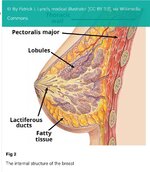Deagle113
Citizen of Zooville
Oh I love this question. It's science time! I would avoid an antimicrobial because of the vaginal microflora (community of beneficial bacteria) needing to maintain a good balance to be healthy. Overgrowth of certain bacteria who may be resistant to the antibiotic will create conditions for inflammation or infection that would have been unable to establish themselves were the flora healthy.Problem:
I was trying to make a pure lube with minimal ingredients, Polymer based lube, dash of salt, distilled water, this was mixed while stirring to active boil then put in a sanitized container. How ever after using I noticed the sheep where wet where they shouldn't be, so that lube was disposed of and after some extra under tail washings they did clear up with out issue.
Intended solution, add antimicrobial.
Considerations:
Sodium benzoate & Chlorobutanol at .05% by mass
Difficulty:
Finding data on how safe and effective this would be for vaginal exposure, based on my knowledge and experiance in general handling this should be well within acceptable ranges, but I figured after this experience I better double check
and what would be a good Ph buffer? I'm thinking a citrate, or an acitate
Citrate is a good pH buffer. If you boil a red cabbage in water, you can make a pH indicator solution to test different concentrations until you get it where you need for the species in question.
Is there a reason you aren't using something like J lube? Seems sort of like re-inventing the wheel here.


